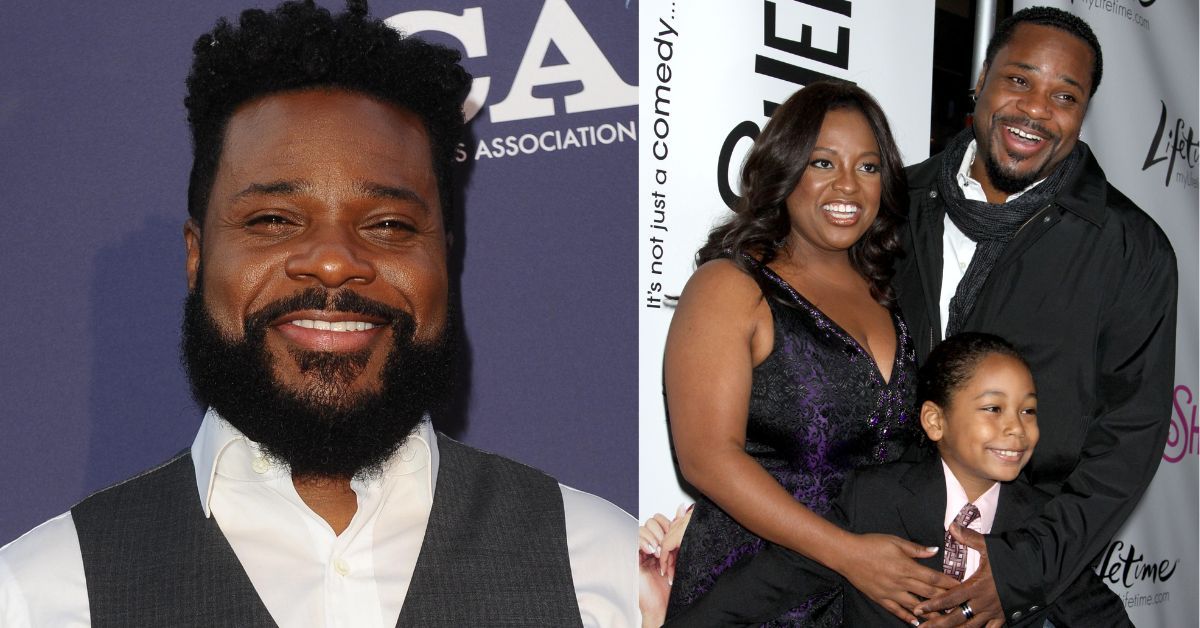Witness to Tragedy: Malcolm Jamal Warner’s Daughter’s Story of Loss
The name Malcolm Jamal Warner evokes images of iconic television roles, insightful social commentary, and a lasting presence in the entertainment industry. However, behind the public persona lies a private life touched by the profound and often devastating realities of loss. This article delves into the poignant story of Malcolm Jamal Warner’s daughter and the tragedy she experienced, exploring the impact of loss and the resilience that emerges in its wake. This exploration aims to provide a sensitive and informative understanding, respecting the privacy involved while highlighting the universality of grief.
Understanding the Context: Malcolm Jamal Warner’s Life and Work
Before examining the specific circumstances of his daughter’s experience, it’s crucial to understand the broader context of Malcolm Jamal Warner’s life. He is not only an actor and director but also a musician, writer, and activist. His work, particularly his role as Theo Huxtable on The Cosby Show, brought him widespread recognition. Throughout his career, Warner has consistently used his platform to address social issues, including those surrounding race, poverty, and family. This commitment to social awareness underscores the personal weight he carries and likely influences his approach to loss.
The Tragedy: A Story of Unexpected Loss
While specific details of the tragedy involving Malcolm Jamal Warner’s daughter are often kept private out of respect for the family, the general narrative speaks to the sudden and devastating nature of loss. The experience highlights:
- The Shock and Disbelief: The initial response to such a loss is often characterized by shock, disbelief, and a profound sense of unreality.
- The Ripple Effect: Grief extends beyond the immediate family, impacting friends, loved ones, and the wider community.
- The Long-Term Impact: The emotional and psychological effects of such a loss can be long-lasting, shaping the individual’s life in profound ways.
- The Importance of Support: Navigating grief requires a strong support system, including family, friends, and professional help.
Coping with Grief: The Journey of Healing
The process of grieving is unique to each individual, and there is no single “right” way to heal. However, common elements often emerge in the journey:
- Allowing Yourself to Feel: Suppressing grief can prolong the healing process. Allowing yourself to experience the full range of emotions – sadness, anger, confusion, and more – is essential.
- Seeking Support: Connecting with others who have experienced loss, either through support groups or individual therapy, can provide valuable comfort and understanding.
- Finding Healthy Coping Mechanisms: Engaging in activities that promote well-being, such as exercise, creative expression, or spending time in nature, can help manage the emotional burden.
- Remembering and Honoring the Lost: Finding ways to commemorate and honor the memory of the loved one can provide a sense of connection and solace.
- Patience and Self-Compassion: Healing takes time. Be patient with yourself, and practice self-compassion throughout the journey.
The Resilience of the Human Spirit: Finding Strength in Adversity
Despite the profound pain of loss, the human spirit possesses a remarkable capacity for resilience. This often manifests in:
- Finding Meaning: Searching for meaning in the loss, whether through acts of service, advocacy, or simply cherishing the memories of the loved one.
- Strengthening Bonds: Loss can sometimes strengthen family bonds, as individuals come together to support one another.
- Developing Empathy: Experiencing grief can foster a greater sense of empathy and understanding for others who are suffering.
- Rebuilding Life: Although life will never be the same, it is possible to rebuild and find joy and purpose once again.
Conclusion: A Testament to Human Endurance
The story of Malcolm Jamal Warner’s daughter serves as a poignant reminder of the profound impact of loss and the enduring power of the human spirit. While the details of the tragedy remain private, the broader narrative underscores the universal experience of grief and the importance of support, resilience, and the journey toward healing. This exploration aims to offer both understanding and respect for those who have experienced such profound loss. The resilience displayed in the face of such devastation provides a powerful testament to the strength of the human heart.
FAQs
1. How can I support someone who is grieving?
Offer your presence and listen without judgment. Avoid platitudes like “They’re in a better place.” Instead, acknowledge their pain, offer practical help (e.g., meal preparation, errands), and be patient. Allow them to talk about their loved one.
2. What are some signs that someone needs professional help with grief?
Persistent and debilitating symptoms such as prolonged sadness, difficulty functioning, suicidal thoughts, severe anxiety, or inability to eat or sleep for extended periods may indicate the need for professional intervention.
3. Is it normal to feel a wide range of emotions after a loss?
Yes, it’s entirely normal. Grief manifests in many ways, including sadness, anger, guilt, confusion, and even relief. These emotions often come in waves and can fluctuate over time.
4. How long does the grieving process typically last?
There is no set timeline for grieving. It’s a highly individual process. While the intensity of grief often lessens over time, the impact of the loss may be felt for years, and some people experience grief episodes triggered by anniversaries or other events.




